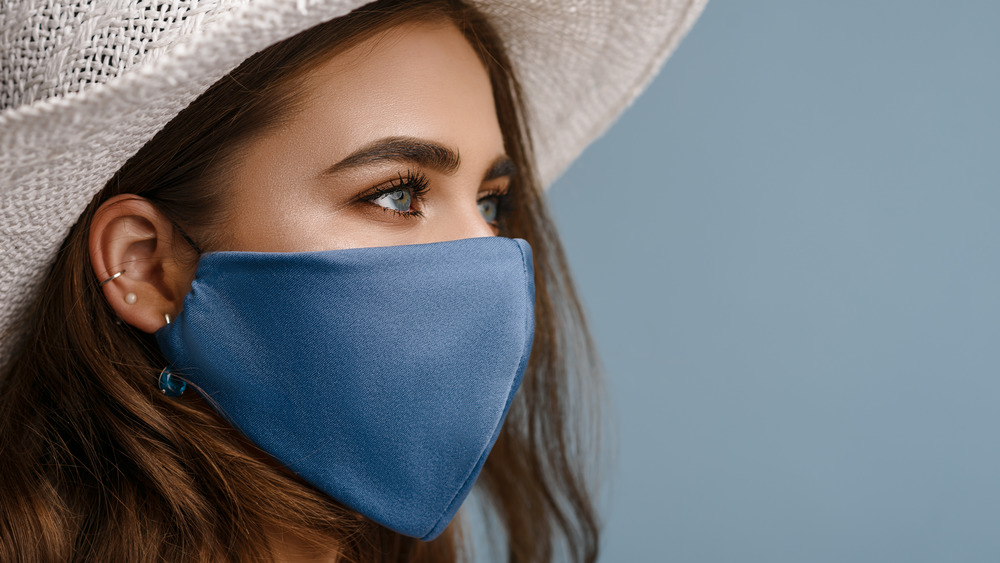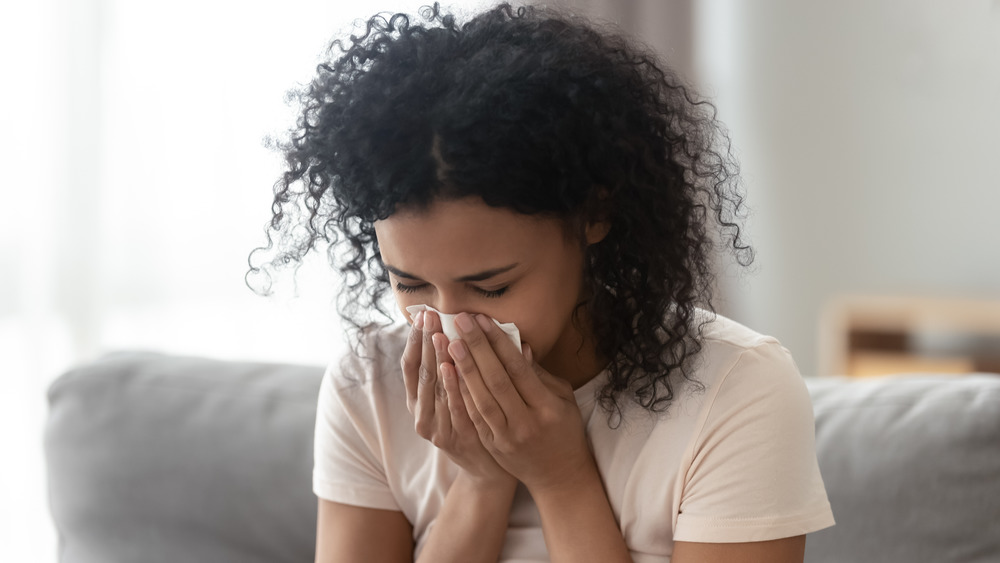Your Face Mask May Have A Surprising Benefit This Spring
Does just thinking about spring make you want to sneeze? You're probably allergic to pollen, along with about 60 million other people in the United States. Symptoms of hay fever, also known as allergic rhinitis, are runny nose, congestion, and sneezing (via CDC).
Good news! Wearing a mask every time you go outside can reduce those symptoms. Your mask can protect you from hay fever and the annoying symptoms that come with it.
A September 2020 study found that nurses wearing face masks didn't have as many allergy symptoms as they had before they needed to wear masks. But not just any mask will do. The nurses in the study were wearing either surgical masks or N95 respiratory masks. These are the ones that can help filter out pollen and other allergens.
The N95 respirator masks can filter the smallest particles — as tiny as 0.04 micrometers, and the surgical masks can filter particles as tiny as three micrometers. Pollen can be anywhere from 10 to 100 micrometers, but you have to wash your mask every time you wear it since pollen can build up on the mask, making your allergy symptoms worse. There's more you can do to reduce your hay fever symptoms (via the September 2020 study and the CDC).
Other ways to reduce your pollen allergy symptoms
When your nose is running, you're congested and sneezing; something is going on inside your body. Your immune system notices the pollen and mislabels it as a threat — basically overreacting. If you have asthma, you could have an asthma attack triggered by pollen (via the CDC).
Wearing a clean surgical mask or N95 respirator mask can help reduce those symptoms, but there's more you can do. Watch the pollen count with a weather app or website and limit your time outside when the pollen count is high. If you have to go outside, wash your clothes and shower when you come back indoors to remove the pollen.
Use portable air cleaners when your windows are closed, and in the rooms you use most often, making sure the filter is changed regularly. You can also have an HVAC specialist come in to install filters in your heating and cooling systems to help reduce indoor allergens.
Put your mask on before you go outdoors and try to ignore the urge to rip it off as soon as you leave a public place. Your mask can reduce how much pollen you inhale, but only if you have it on and keep it clean.


